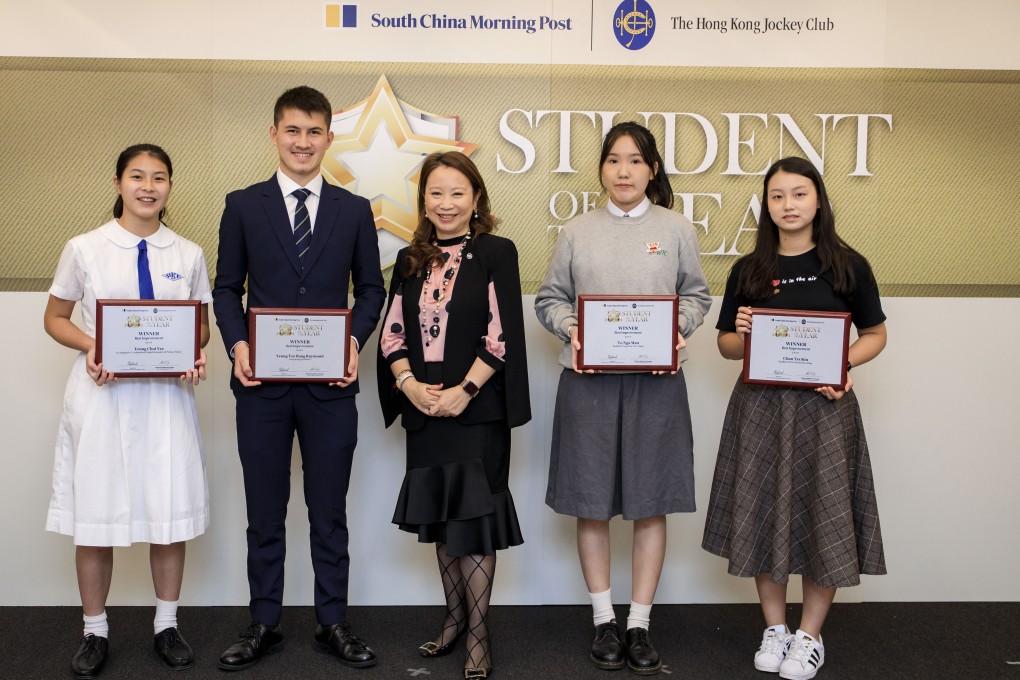Serving Hong Kong’s needy, bridging cultures: Student of the Year Awards honour social work, innovation
- Student volunteer Mary To gets Best Improvement award, while Brian Ng is first runner-up in Community Contributor category
- Organised by South China Morning Post and sponsored by Hong Kong Jockey Club, the prizes recognise city’s best students in various spheres

This year, there were 11 awards handed out across nine categories – including science, maths, languages, sport, best improvement and best devotion to school – plus the main award, with judges praising all the winners for their ability to cope with challenges amid the coronavirus pandemic.
More than 609 students from 123 secondary schools took part in the annual event.
Here are some of the winners:
Best Improvement: Mary To
Mary To Nga-man’s story of turning her life around is certainly an encouraging one. A student at the Hong Kong Institute of Vocational Education, she is forging a path towards becoming a social worker helping youths. But, as she points out, her first experience with volunteering and community outreach happened almost by accident.
In secondary school, To was, in many ways, a “bad student”.